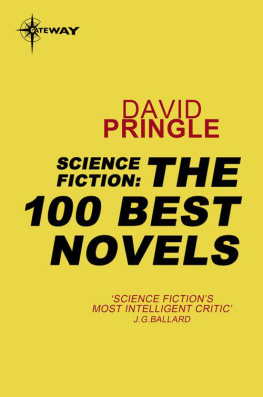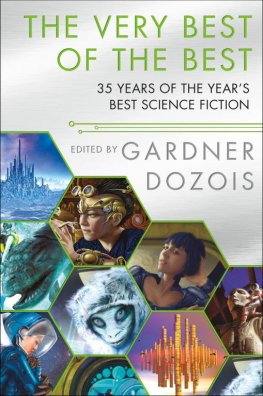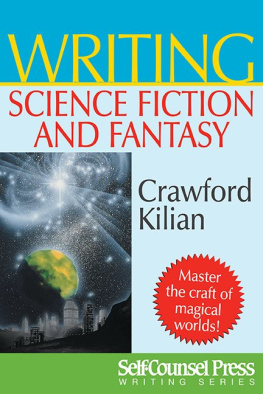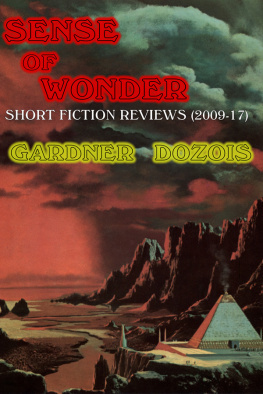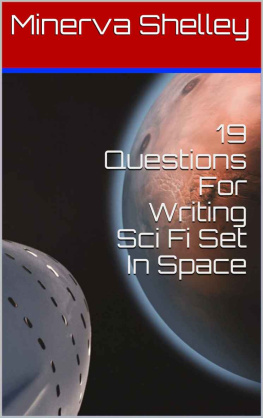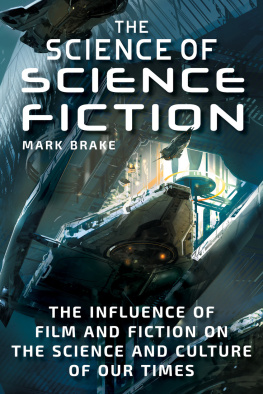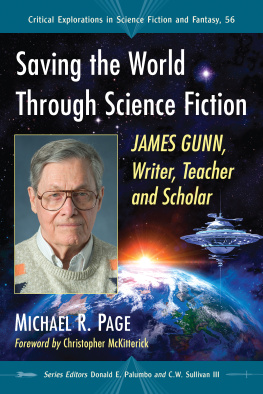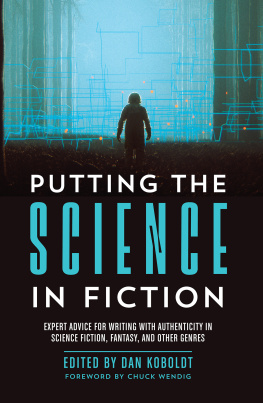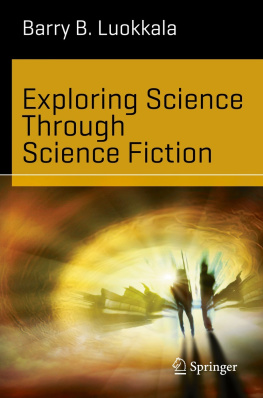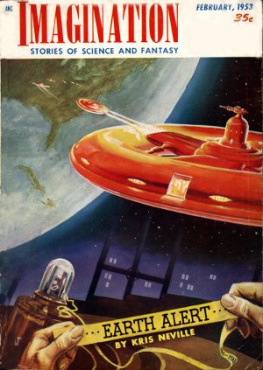Enter the SF Gateway
In the last years of the twentieth century (as Wells might have put it), Gollancz, Britains oldest and most distinguished science fiction imprint, created the SF and Fantasy Masterworks series. Dedicated to re-publishing the English languages finest works of SF and Fantasy, most of which were languishing out of print at the time, they were and remain landmark lists, consummately fulfilling the original mission statement:
SF MASTERWORKS is a library of the greatest SF ever written, chosen with the help of todays leading SF writers and editors. These books show that genuinely innovative SF is as exciting today as when it was first written.
Now, as we move inexorably into the twenty-first century, we are delighted to be widening our remit even more. The realities of commercial publishing are such that vast troves of classic SF & Fantasy are almost certainly destined never again to see print. Until very recently, this meant that anyone interested in reading any of these books would have been confined to scouring second-hand bookshops. The advent of digital publishing has changed that paradigm for ever.
The technology now exists to enable us to make available, for the first time, the entire backlists of an incredibly wide range of classic and modern SF and fantasy authors. Our plan is, at its simplest, to use this technology to build on the success of the SF and Fantasy Masterworks series and to go even further.
Welcome to the new home of Science Fiction & Fantasy. Welcome to the most comprehensive electronic library of classic SFF titles ever assembled.
Welcome to the SF Gateway.
Contents
It seems to me that there are few modern commentators on science fiction better qualified to make a selection of this sort than David Pringle, and I am happy to agree with most of his choices. I cant claim to have read every book included here but I was surprised, when I came to study the list, at how many I did know! During my main period of enthusiasm I found unreadable many of the Golden Age classics so praised in the fifties, and although Im sure the inclusion of the likes of Robert Heinlein is necessary to give the book balance, I must say I remain blind to their virtues. But many of David Pringles choices are actually readable! Not a few are very well written, and a handful come from some of our best modern writers.
Theres no question that the earlier books mentioned here (and some of the later ones) were seminal to the development of sf subject-matter and, to some extent, its treatment. We find the political satire of Nineteen Eighty-Four, the post-disaster story of Earth Abides, the romantic and ironic metaphors of The Martian Chronicles, the paranoid conspiracy theme of The Puppet Masters and the unplanned-for disaster of The Day of The Triffids all in the first three years. In the early fifties there were certain attempts to break narrative conventions (in Bester, for instance, with his brilliantly imagined use of telepathy and teleportation), but in the main sf story-telling was extremely conventionalWilliam Burroughs excepted. Because this is a selection of novel-length stories, examples of experimentalism only begin to appear in the late sixties; many of the fresh narrative techniques were being explored in the mid-sixties in shorter forms, however, and it is a shame that some of the best writers to bring attack and adventurous techniques to sf (e.g. Langdon Jones and Harlan Ellison) are excluded for this reason, while some who are included such as Robert Sheckley, M. John Harrison and J.G. Ballard are not necessarily represented by their best work. Short-story collections by Ellison and Sheckley are readily available, and I would recommend Harrisons The Ice Monkey and The Machine in Shaft Ten; Langdon Jones The Eye of the Lens remains a remarkable collection of short, mainly experimental fictions, and I should also mention Barry Bayleys The Knights of the Limits, as well as his novel Soul of the Robot.
Again, very few women were writing full-length stories until relatively recently. Im glad to see Leigh Brackett represented, disappointed not to find C.L. Moore, Katherine MacLean or Judith Merril. I am glad, however, to endorse David Pringles choice of Joanna Russs The Female Man, which I believe is an outstanding piece of fiction on every level. By the time the list gets into the seventies there are a few more women novelists appearing and of these the best, in my opinion, are those who have used sf to express their own righteous anger, producing feminist fiction in a form which best suits what they have to say. Too few people, it seems to me, have chosen the sf form as a means of harnessing and directing their impatience, sense of injustice, political frustrations and general indignation at the greed, folly, violence and unconscious (or conscious) misuse of power displayed everywhere today. Brian Aldiss once said that sf could never claim to be a mature form until as many women as men read it. I would agree, and add that the form overall (as opposed to many individual exceptions) will have come into its own when as many good women writers find it suitable for their needs.
It would be a good sign, I think, if the next list of 100 Best SF Novels (from 1985) contained a predominance of books by women, and by black peopleonly two black writers (Delany and Butler) are included hereas the present list contains (for understandable reasons) a majority by white middle-class men. The potential is there. I continue to believe that it has a good chance of being realized.
How can you know if this selection is actually the best hundred sf novels published since 1949? Im sure any individual would quarrel with some of the choices. Im also pretty certain that most readers would agree on at least fifty of the books mentioned here. And that, I think, is an excellent percentage.
MICHAEL MOORCOCK
What is science fiction?
For many people nowadays, science fictionsci-fi as the media folk miscall itmeans movies. It means Star Wars, E.T. and 2010. For others it signifies television shows such as Doctor Who and Star Trek, or radio series like The Hitch-hikers Guide to the Galaxy. For some, it may denote the comics, from Superman to Judge Dredd. Yet again, it may mean computer games such as Space Invaders or Trader. Clearly, science fiction has many faces. It could even be defined as a type of advertising, used to sell instant mashed potato or the services of British Airways.
However, the present work is not a study of such pop-cult phenomena. It is strictly about the written word, about science fiction in book form. Let us call the subject matter of this volume sf. All the rest is sci-fi. Written sf is at least as old as the voyages extraordinaires of Jules Verne, which began to be published in English translation in the 1870s. It is older than the scientific romances of H.G. Wells and his imitators, which appeared in abundance after 1895. For several decades it was kept alive principally by popular magazinesmagazines which were founded in the 1920s, 30s and 40s, and bore titles such as Amazing, Astounding and New Worlds. These periodicals encouraged the writing of sf short stories and novelettesand, in due course, they gave birth to the modern sf novel.
Yes, but what is science fiction?
There is no short answer to this vexed question. In the present context, the best reply is simply to point at the pile of one hundred novels which are listed in this book, and to say therethose are science fiction!but I cannot duck the issue quite so easily. After all, I chose those hundred titles, and I must have done so according to

